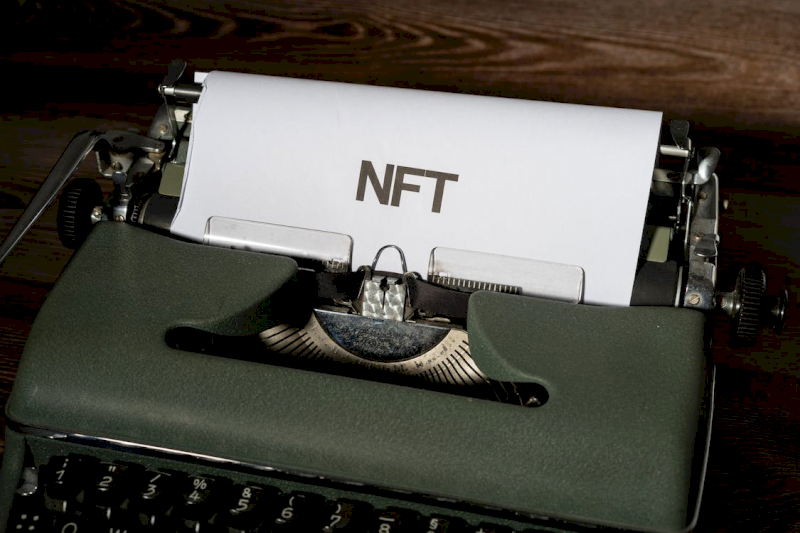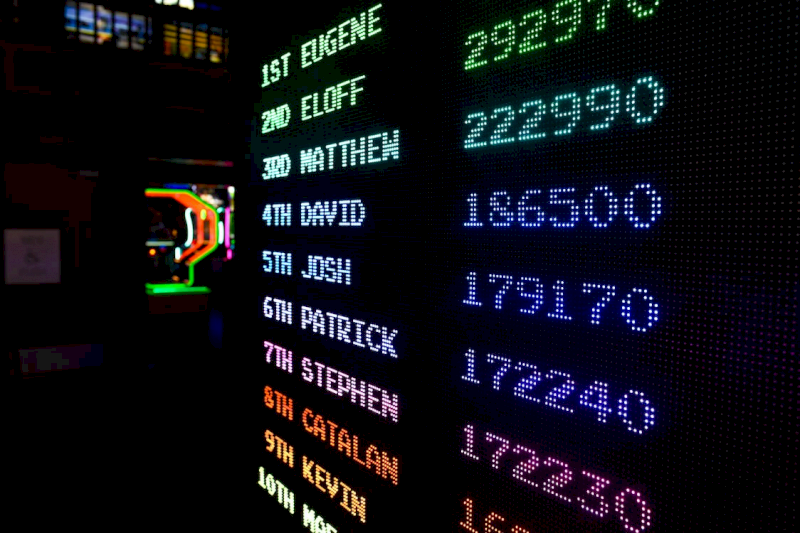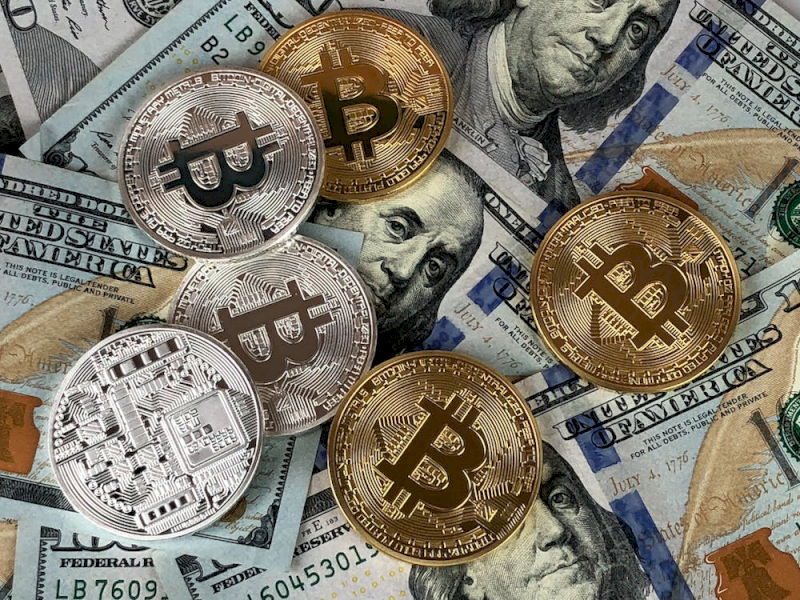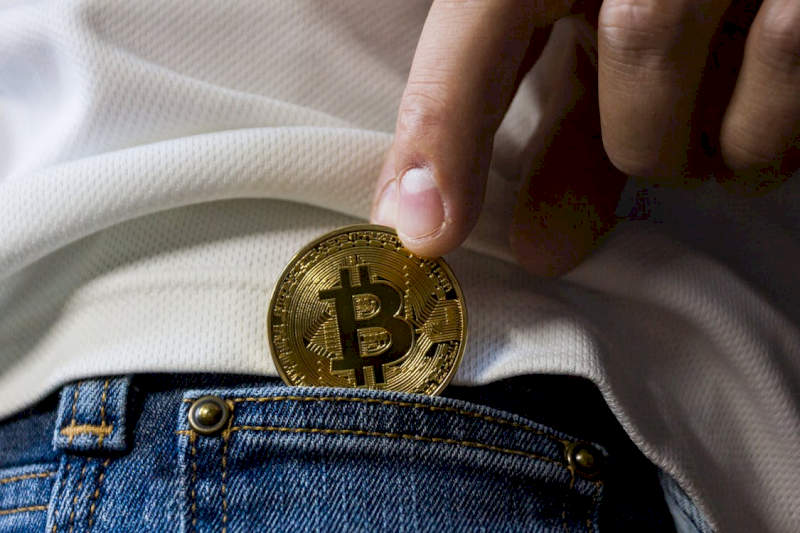The Role of Crypto in NFT Game Development in 2023
Author
Arjun Ruparelia

Utilizing blockchain technology and leveraging decentralized applications (dApps), NFT games are rapidly transforming the way individuals perceive and play games online.
But why is NFT gaming gaining popularity among players?
NFT gaming is gaining traction due to its unique features, such as the amalgamation of the real and virtual world, the enhanced utility of in-game asset purchases, player ownership, interoperability, immutability, and the ability to earn money while playing (play-to-earn) games in a secure and flexible environment.
With the international play-to-earn NFT gaming market size worth US $3.29 billion in 2022 and growing at a CAGR of 17.93%, it's expected to reach a US $8.85 billion valuation by 2028.
So what does 2023 have in store for NFT games? Let’s find out.
What are NFTs in Gaming, and How Does Crypto Help in Their Development?
Before we get to the meaning of NFTs in gaming, let’s understand what NFTs are, first.
NFTs, or non-fungible tokens, are unique and irreplaceable cryptographic tokens held on a blockchain network to track the ownership and verify the authenticity of a digital asset. These tokens are equipped with distinct identification codes and metadata that serve as an authentication certificate and define an NFT's properties and history while recording transaction details.
But what separates them from other tokens, such as cryptocurrencies, that are also hosted on the blockchain?
The primary differentiator is that NFTs are non-fungible. For instance, fungible tokens like cryptocurrencies hosted on the same blockchain network, such as bitcoins, can be exchanged with each other. But NFTs are rare and indivisible, making exchanging or replacing one with the other impossible.
So while there can be innumerable virtual copies of an NFT, only one original copy can be owned by a single individual or entity.

At its core, NFTs are digital assets and can represent any real-world or digital item. So, realistically an NFT can embody something as mundane as tacos, memes, or tweets, while it can also stand for music, art, or a piece of real estate. Due to their digital nature, NFTs can be sold, bought, or traded easily with other collectors.
Since most of these digital assets are stored on Ethereum's blockchain network or BNB Smart Chain (BSC), they help secure NFTs. But how does that apply to NFT games?
What are NFT games?
Now that you’re clear on NFTs, let’s understand the meaning of NFT games.
NFT games are similar to traditional video games in the sense that you can acquire special weapons or military-grade armor, and unlock prizes, upon reaching a new level or winning a battle, to enhance your gaming skills.
But unlike traditional games, in an NFT-based video game, players don’t have to bid their special weapons, armor, or prizes goodbye once they log out of the game.

Does this mean that you can use your battle armor in the real world? Well, the answer is yes and no.
Though your battle armor won't be tangible — you can't touch or feel it — you can use NFT games' cross-platform functionality to transfer it to another game or sell it off to another player for cryptocurrency. In short, a cross-platform NFT gaming ecosystem has the power to transform your in-game purchases and prizes into digital assets that you can transfer or exchange for money and other digital assets. Given their unique and digital nature, NFTs can be used in games to represent characters, props, cards, in-game weapons, or other tradeable products.
So how about we learn how you can earn money while playing the best NFT video games?
How do NFT games work, and can they be monetized?
Developers use smart contracts — automated blockchain programs that execute commands when certain criteria are met — to facilitate the creation and smooth functioning of an NFT game.
But it's an NFT-dominated world in the land of NFT games. For instance, your digital avatar could be displayed as an NFT, and digital items you uncover on your gaming journey could be NFTs too. You'll no longer just be holding crypto-collectibles in your NFT wallet. An NFT-based game has NFTs embedded into its DNA, used for player interactions and governing game rules and mechanisms. Now, for the big question: how do you monetize your playtime on an NFT game?

Interestingly, you have better chances of earning tokens or NFTs the more time you spend playing a play-to-earn game. Since only one individual can truly own an NFT, you can swap your NFT for other NFTs or sell your NFTs to turn a profit. It's important to remember that the value will depend on the NFT’s rarity, usage, and market demand and the game rules.
This could lead to some perceived losses while playing NFT games. Moreover, you could also lose your NFTs to scams, since approximately 4 out 10 NFT sales are fake. You could also lose them to game rules or during the transfer stage, so take precautions when playing a play-to-earn game, transferring your NFTs, or receiving cryptocurrencies in exchange.
Speaking of cryptocurrencies, they're one of the key elements driving the growth of NFT games in 2023. They don't just attract players but also add value for creators. Wondering how? Let's find out.
What is the role of cryptocurrencies in NFT games in 2023?
Since NFTs are facing long-term challenges to growth and NFT games are still in their beta or development stage; cryptocurrencies can help them garner more interest from players. Cryptocurrencies can prove beneficial for developers too.
Here’s the role of cryptocurrencies in NFT game development in 2023:
1. Cryptocurrencies add the ‘finance’ in GameFi
Cryptocurrencies influence all gaming finance (GameFi) activities related to NFT games. They are one of the key incentives for individuals to sign up for NFT games and spend their precious time playing video games online.

Case in point, the citizens of the Philippines got hooked on one of the most popular NFT games, Axie Infinity, to earn money during the pandemic and, later on, to battle its aftermath. Since you only need a phone and a decent network connection, Axie Infinity struck a chord with the natives struggling to make ends meet.
Although this play-to-earn game is fairly entertaining and requires strategic thinking, what made Filipinos addicted was the fact that they could earn money through NFTs and cryptocurrencies by spending their time on breeding, battling, and, ultimately, trading their digital pets or Axies.
Having the option to trade their NFTs for cryptocurrencies and then converting the cryptocurrencies into their legal tender is what made this game explode.
But the dependency on cryptocurrency is not without its drawbacks. The most important one is its volatility. So cryptocurrencies in NFT games could not only help you earn money, but you could also lose money if the value of a cryptocurrency falls drastically.
2. Cryptocurrencies educate the average person about NFT games
Cryptocurrencies are no longer a hoax or a passing trend. They’re the trendsetters today. The potential to earn money is definitely the deciding factor, but how do you lure players when they’re not even aware of the NFT gaming environment?
The fact that cryptocurrencies and NFTs use the same underlying technology, gives people the confidence to step out of their comfort zone and try out new games in an environment they might not be very familiar with.
This added confidence helps increase the player base of a game and makes it easier for developers to attract new players and retain existing ones by dangling the fruit of winnings.
3. Cryptocurrencies make NFT games beneficial for the owners
The math is pretty simple for players. They will migrate to games where they see an opportunity to have fun and earn cryptocurrencies at the same time.
NFT games are strategic, and players can play them for free and earn money, making them addictive. Since the number of active players judges a game's success, NFT games make for an attractive proposition. After all, who wouldn't want to earn money while playing games?
While there's still a lack of hardcore video game players in the NFT games ecosystem, casual game players are a critical audience for NFT games. More players equals more success in the gaming market. This also translates to more money and support from investors, advertisers, and sponsors.
Benefiting from a huge player base, Axie Infinity went from being a scrappy NFT game-building company to securing US $7.5 million in their Series A funding. Not only this but they're also backed by some of the best in the industry, including Shark Tank USA investor Mark Cuban, in their quest to convert billions of users into loyal players.
NFT games can benefit immensely from cryptocurrencies in 2023
NFT games are the future of online video games and are here to stay. Their utility and the value of NFTs in the real world helped them gain a massive player base, which is growing by leaps and bounds.
But exercising caution while playing such games is always a good option since NFT games are fast becoming a preferred alternative revenue stream, making it crucial to remember that it’s possible to lose money in such games, given the speculative nature of NFTs and the volatility of cryptocurrencies.
Author Bio
An accountant turned writer, Arjun writes financial blog posts and research reports for clients across the globe. Arjun has five years of financial writing experience across verticals. He is a CMA and CA (Intermediate) by qualification.
Email - ruparelia.arjun@gmail.com